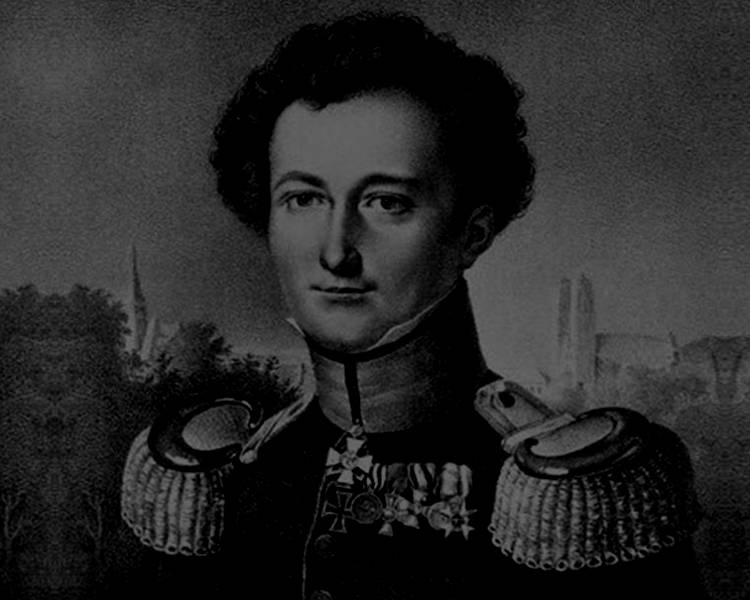
Strategy and brands: Hey brand guys, Clausewitz was way ahead of you.
“Strategy is not a lengthy action plan – it is the evolution of a central idea through continually changing circumstances.”
– Carl Von Clausewitz
The sign of a good quote is when everyone thinks it applies especially to them. I’m a sucker for this one, so let me suggest that, if you squint your eyes just the right way, it says something really interesting about corporate brands and what a hard-working brand can accomplish.
Let’s see…
The first phrase about action plans is straightforward – so much so that it fails to say anything very interesting. Clausewitz was on to this nearly two centuries ago and by now the limitations of action plans are pretty self-evident. I think we can agree that in 21st century business, the pace of change can make a detailed long-term plan irrelevant before it’s even been approved. Real strategy needs to be about something deeper.
It’s after the dash where the quote gets less obvious, opening up some space for the notion of corporate brands. What, precisely, do we mean in a business context when we talk about 1) a “central idea” and 2) “evolution” of that central idea?
How central does a central idea need to be?
The only reason anyone knows the Clausewitz line is because GE’s Jack Welch had a go at it in the 1980s – to the point that the quote is usually attributed to Welch himself, not the Prussian general*. So Welch took Clausewitz to heart and got rid of a few hundred corporate strategists (i.e. makers of action plans) and re-engineered his huge conglomerate around the central idea of being number one or number two in every business they were engaged in.
That approach was successful – as Welch’s book points out at some length. But you could question whether “being number one or number two” is really a strategic central idea. More of a governing tactical principle, I’d say.
A better candidate for a “central idea” is the corporate purpose, as stated in the form of a customer value proposition. This is the idea of how a company proposes to make life meaningfully better for its customers. What could be more central than that? The idea is typically expressed in the form of a corporate brand.
BMW’s brand is about driving pleasure, so it builds its entire corporate strategy – not just marketing – around that. Product planning, channel development and production management all point in the same well-understood direction even as technology advances and competitors find new ways to attack.
If you look at post-Welch GE, you can also see a central brand idea at work. The company today describes its purpose as “inventing the next industrial era: to build, move, power and cure the world.” GE still wants to be number one or two in everything, but now they have something to be number one or two about.
Evolution: what happens when central ideas enter the real world
So what does the central idea, or in our parlance the brand proposition, have to do with strategy and implementation? This is where brands are woefully underutilized by their owners.
Clausewitz held fast to his central idea because he did not expect preconceived plans to survive beyond first contact with the enemy. He knew that he would need a higher principle to guide real-time responses to events, vagaries of execution and the independent will of his opponent.
Companies can use their brands in the same way, to help frame operational objectives and guide implementation in the face of changing circumstances. In practice, this means that working teams – whether they are in sales, product development, production or marketing – consciously and continuously measure their actions and achievements, in real time, according to how well they deliver on the core promise to customers. We call this operationalizing the brand.
When a brand like CVS pharmacies goes about operationalizing its brand promise to “be the easiest pharmacy retailer for customers to use,” the company makes sure that everyone, from store managers redesigning a merchandising schema to central buyers refining a product lineup to development people researching new store locations, explicitly evaluates their actions according to how well those actions deliver on the promise.
Too few companies put their brands to work in this fashion. Some haven’t clearly defined what their brand is about, or have defined it in a way that leaves the customer out of the equation. Others have a well-articulated customer proposition which they hand over to the marketing department to drive the latest advertising campaign. Such a waste! Every company can have a Clausewitzian central idea to guide them through times of change. It’s just a matter of getting their corporate brand into strategic shape and plugging it in to daily operations.
Improving on perfection
As pithy as the original Clausewitz quote is, it doesn’t hurt to clarify it for our own purposes by pasting in our terminology in a couple of key spots. Like this:
“Corporate strategy is not a lengthy action plan – it is the operationalization of the brand proposition through continually changing circumstances.”
There. Not so pretty, but it’s a good way to describe how brands work and how they relate to strategy.
Carl Von Clausewitz: strategist, military genius, corporate brand guru. A man ahead of his time.